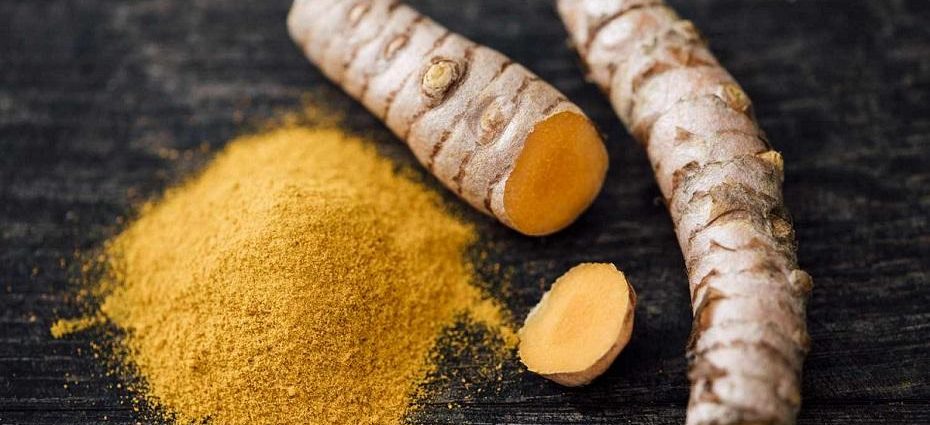Turmeric is a rhizome, an underground stem that grows horizontally and with several buds, being highly appreciated for its medicinal properties and numerous gastronomic uses. The rhizome is cut and decayed to get a fine yellow or orange powder of somewhat sweet flavor but with a bitter and slightly spicy touch.
Turmeric is usually used in the preparation of rice, soups, meats, and fish, providing the dishes with an attractive touch of color. This plant in the Zingiberaceae family comes from southwestern India and has been used there for its many properties and health benefits, especially for the heart, immune system digestive, skin, and liver.
Below we’ll discover the properties and benefits of turmeric for health, don’t miss it.
Properties of Turmeric
Turmeric is considered the queen of spices for its great medicinal properties. According to its nutritional composition, turmeric provides proteins, fiber, niacin, sodium, potassium, calcium, copper, iron, magnesium, zinc, vitamins C, E and K. The bioactivity of turmeric lies in curcuminoids, with curcumin being the most notable compound.
In 2009, it was adopted as a medicinal product by the Herbal Medicinal Products Committee (HMPC), been used since ancient times for its medicinal benefits in traditional Chinese medicine, Hindu, and Ayurvedic medicine.
Contraindications of turmeric
Turmeric consumption is discouraged during pregnancy, and breastfeeding is not recommended in children and adolescents under 18 years of age. In addition, it is important not to exceed the recommended daily dose, i.e. about 300 to 600 mg/day of the root extract of standardized turmeric at 95% of curcuminoids or add turmeric to our daily diet (SAIZ DE COS, P, 2014).
Benefits of Turmeric for Health:
Among its benefits are:
It has digestive properties
In small quantities, in infusions, or added to meals, turmeric favors digestion, alleviating indigestion, preventing gas formation, and acting as an excellent digestive restorative.
It can be beneficial in preventing obesity
Curcumin facilitates the removal of fats by moving and metabolizing them. According to a study by Tufts University in Boston, United States, dietary curcumin can have a potential benefit in preventing obesity.
It has astringent properties
These properties make turmeric an excellent ally to curb diarrhea from gastrointestinal inflammation, allergies, or poisoning.
It has a restorative action at the liver level
Both Chinese and ayurvedic medicine have used turmeric to decongest the liver and treat diseases such as jaundice.
It also has anti-inflammatory action in the case of rheumatism.
Curcumin relieves inflammatory problems related to diseases such as multiple sclerosis, rheumatoid arthritis, and psoriasis (COS COSIZ, P, 2014). Thus, in his article, the study carried out on 45 patients with rheumatoid arthritis is an example. It found that a dose of 500 mg of curcumin daily lowered inflammatory levels without adverse effects.
Disinflammatory and healing action
A topically applied, turmeric has a powerful deflammatory action in ulcers, burns, sores, and insect bites. Due to its antioxidant and scarring properties, paste turmeric is also used to apply to the skin as a homemade and natural remedy to treat sunburn and damaged skin.
Protects and helps keep your skin healthy
Turmeric also helps to eliminate toxins, thus favoring the elimination of toxins and keeping the skin unpless, rejuvenating, and healthy. Other cosmetic uses include hair dye, stimulation of capillary growth, and the treatment of dandruff.
